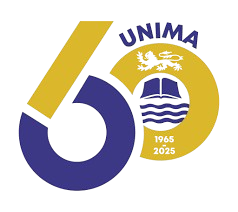Exploring Multilingual Markets and Language Skills in Informal Employment
The School of Humanities and Social Sciences at UNIMA is venturing into new territory in language education. Shortly after signing an MoU with the Darrusnah Foundation to expand its academic offerings to include Arabic programs, the school hosted a seminar titled "Multilingual Markets: Investigating Language Skills for Informal Employment in Malawi." This event, held on 28th June, 2024, at the School of Humanities and Social Sciences boardroom, marked the launch of the Multilingual Markets project.
Dr. Emmanuel Ngwira, Executive Dean of the School of Humanities and Social Sciences, expressed his enthusiasm for the project, emphasizing its potential to spark meaningful discussions about the value of languages in Malawi. He highlighted the economic role of language in communication and wealth creation, stressing the importance of language choice in daily life. The Dean highlighted the project's alignment with the university's and the School of HSS's new direction towards multidisciplinary research, underscoring collaborative efforts across diverse fields for enhanced knowledge production.
"I am really glad that in this project we have people from the humanities and social sciences working with economists. This allows us to be more productive in terms of knowledge production," he said. "We are no longer working in compartments anymore; we are trying to explore the value our different disciplines bring to academic circles and how best we can use them to generate knowledge that informs policy and guides development."
The project, which will be conducted in collaboration with the University of Glasgow and the University of Stirling, aims to provide a detailed overview of the linguistic reality of the informal labour market in Malawi. Dr. Ahmmardhouh Mjaya, Principal Investigator of the project, emphasized in an interview the project's focus on understanding which languages are predominantly used in the informal economy, challenging current educational policies that may overlook other languages. He highlighted the need for policies that cater to the linguistic diversity of local markets, advocating for a holistic approach to empower all learners in multilingual environments.
“We want to find out which languages people use predominantly in their transactions, and we are relating this project to language policy,” he said. “We understand that not all learners who start from primary school make it to university; some drop out along the way, and our language policy seems inadequate for those who drop out, as they are the ones most involved in the informal sector where English is not commonly used.”
Ultimately, the project aims to quantify the economic impact of language skills, benefiting from the expertise of professionals in fields such as Economics and Linguistics. This interdisciplinary collaboration reflects a commitment to ground-breaking research that transcends traditional disciplinary boundaries.
The seminar also discussed parental attitudes in urban areas favouring English language, potentially neglecting the linguistic needs of the informal sector. The discussion aimed to deepen understanding of how language plays a pivotal role in unlocking opportunities within Malawi's dynamic informal economy.
This initiative at the University of Malawi underscores its dedication to advancing knowledge and addressing real-world challenges through innovative research.




